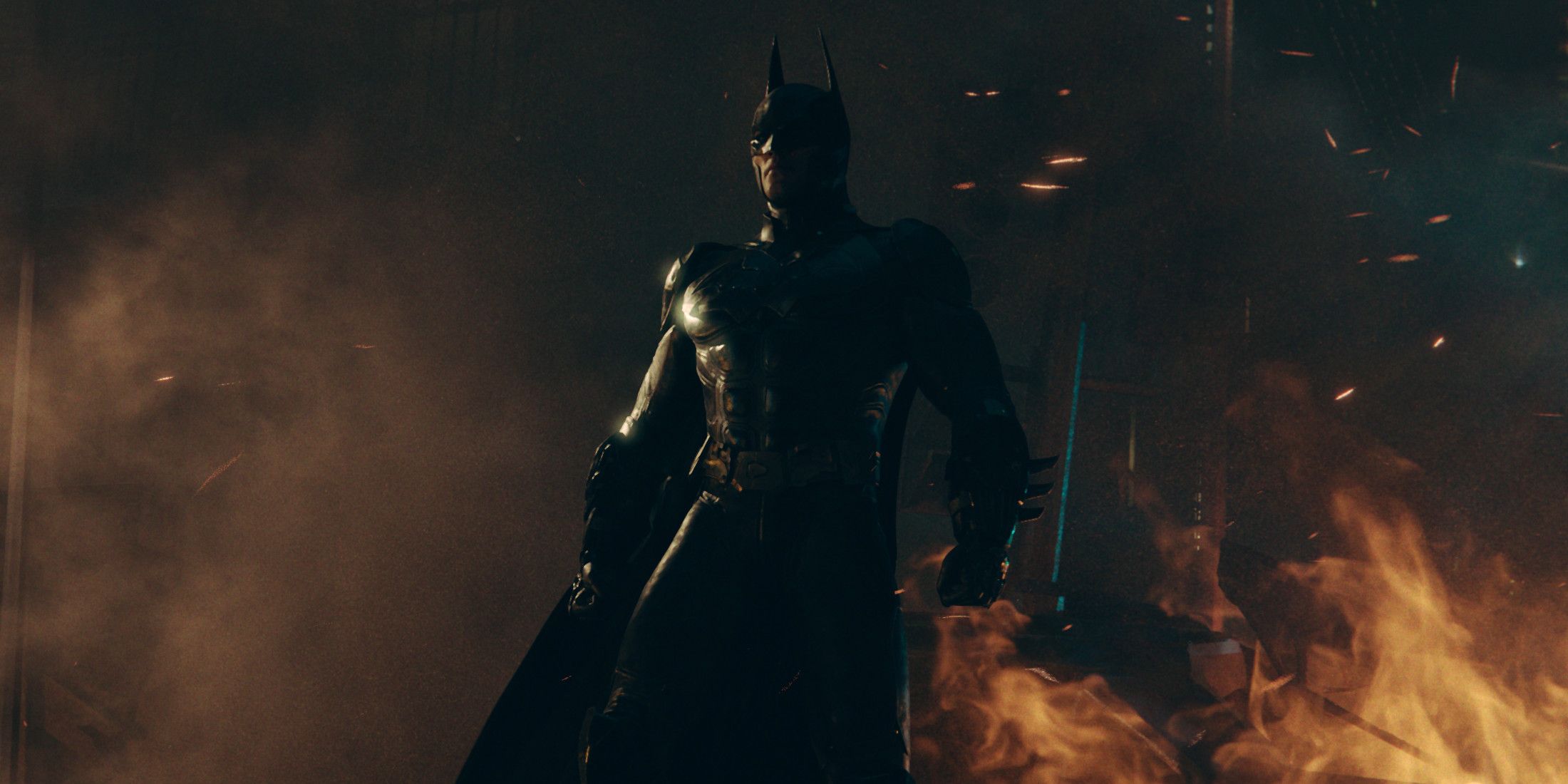[[{“value”:”
The gaming division of Warner Bros., specifically its sphere of DC Comics properties, has pinned its success on the Batman: Arkham franchise since Arkham Asylum released back in 2009. But if the brand truly wants to grow in the gaming market, it might need to take more bold steps, moving away from the Caped Crusader even as projects like Batman: Arkham Shadow continue to show promise and garner positive press.
It’s difficult to overstate just how influential the Batman: Arkham franchise was, particularly during the seventh console generation. The franchise’s unique blend of open-ended stealth, free-flow combat, and cinematic storytelling made it both a treat for Batman loyalists and an accessibly good time for casual fans. More significant was the impact that these creative choices had on the gaming medium; Arkham‘s combat found its way into a number of non-Batman games, like Sleeping Dogs, Mad Max, and the Middle-Earth series. Even today, the remnants of Arkham‘s gameplay can be seen in the likes of Marvel’s Spider-Man and Ghost of Tsushima, indicating its enduring legacy. The other biggest sign of Batman: Arkham‘s mammoth success is the fact that Warner Bros. hasn’t managed to top it yet.
Batman: Arkham Shadow Features a Big Emphasis on Two-Face’s Better Half
Batman: Arkham Shadow’s Camouflaj teases what kind of a role Harvey Dent will play and how the actor portraying him inspired that role to be bigger.
The Batman: Arkham Games Can’t Be the Only DC Solo Adventures
Needless to say, there are still DC video game adaptations, such as Suicide Squad: Kill the Justice Leagueand Gotham Knights, but there hasn’t been anything approaching the quality, polish, or powerful creative vision of the Arkham series. Yes, Suicide Squad and Gotham Knights are riddled with assorted problems not shared by Batman’s titles, but they are also fundamentally different from the Arkham series. It almost seems as though DC and Warner Bros. lack confidence in solo hero stories, opting instead to double-down on co-op or team-up games.
Batman may be a more popular stand-alone character than someone like Green Lantern or The Flash, but a big reason for that is the investment that controlling parties have made in his stories. Twenty years ago, it would have been hard for the average moviegoer to believe that Iron Man could helm three solo films and an entire blockbuster franchise, but that’s exactly what happened with the MCU, because the character was given the opportunity to grow and become relevant. The same thing must happen with future DC games; Warner Bros. should take the opportunity to spotlight other heroes, building ambitious, novel projects around them.
How DC Could Benefit from Non-Batman Games
If Monolith’s upcoming Wonder Woman game is any indication, it looks like Warner Bros. is already taking the initiative to grow beyond the confines set by Batman: Arkham. Assuming Wonder Woman is a success, the Amazonian heroine could become the new Batman, in a sense: she could lead DC video games for the foreseeable future, ushering in a new era for the franchise.
This is assuming that the
Wonder Woman
game is creatively and mechanically distinct from what came before it; if it feels like nothing more than a
Batman: Arkham
game with a Wonder Woman coat of paint
, it will probably be underwhelming.
As DC Comics fans cross their fingers for Wonder Woman‘s success, it’s worth looking even further ahead, beyond Monolith’s current ambitions. Warner Bros. could make a push for some sort of gaming extended universe, but it would probably be best not to hinge an entire franchise’s success on a single point of failure. Perhaps the future of DC games lies in a decentralized approach, where a multitude of different characters can have their chance to shine with stand-alone, unique projects. If Warner Bros. starts outsourcing its games, as rumors have suggested, then this could wind up becoming a reality, though not in the way most would have expected.
“}]] The shadow of the Batman: Arkham franchise has hung over DC games for too long, and it’s time for Warner Bros. to step out of it. Read More

